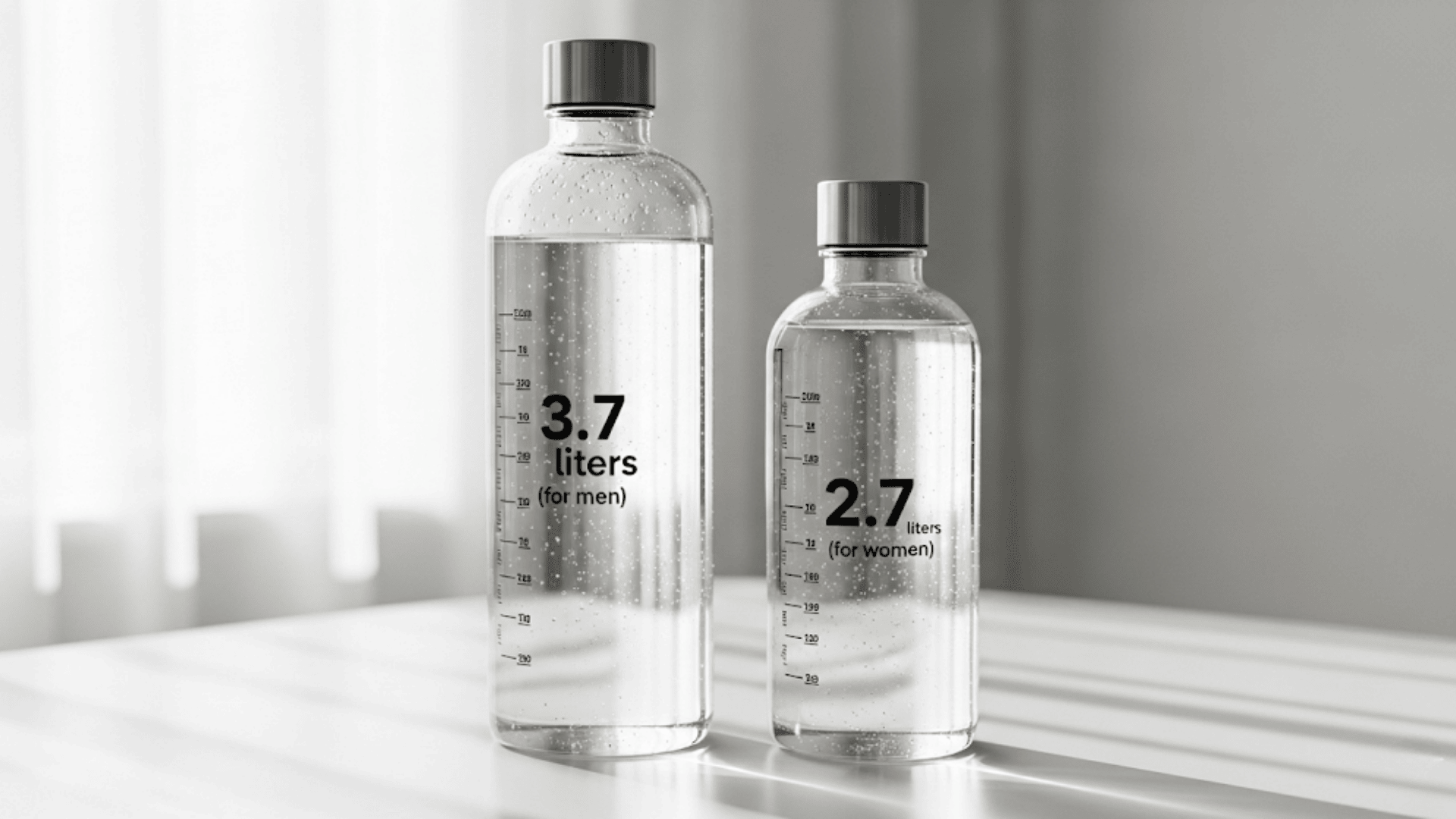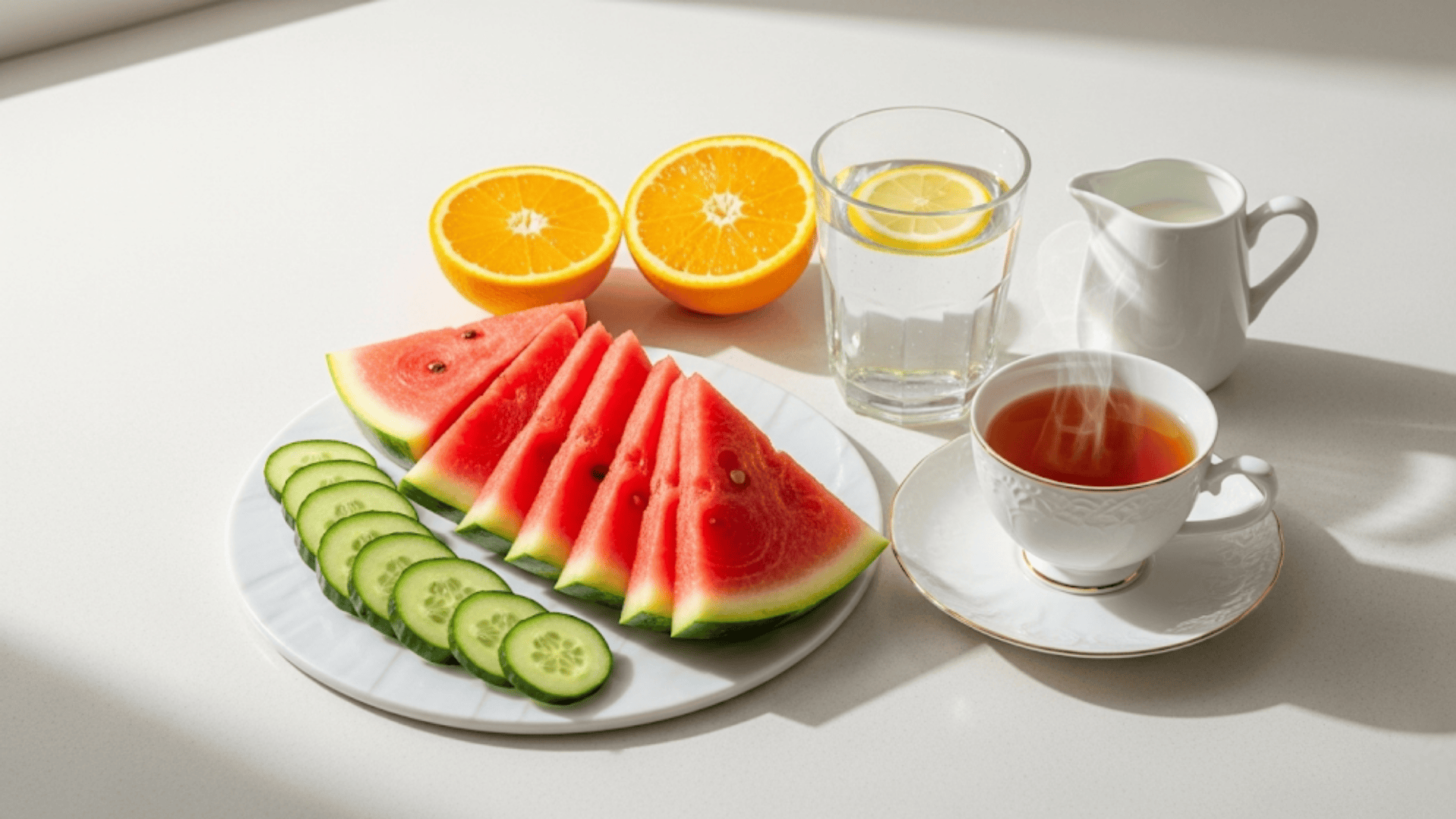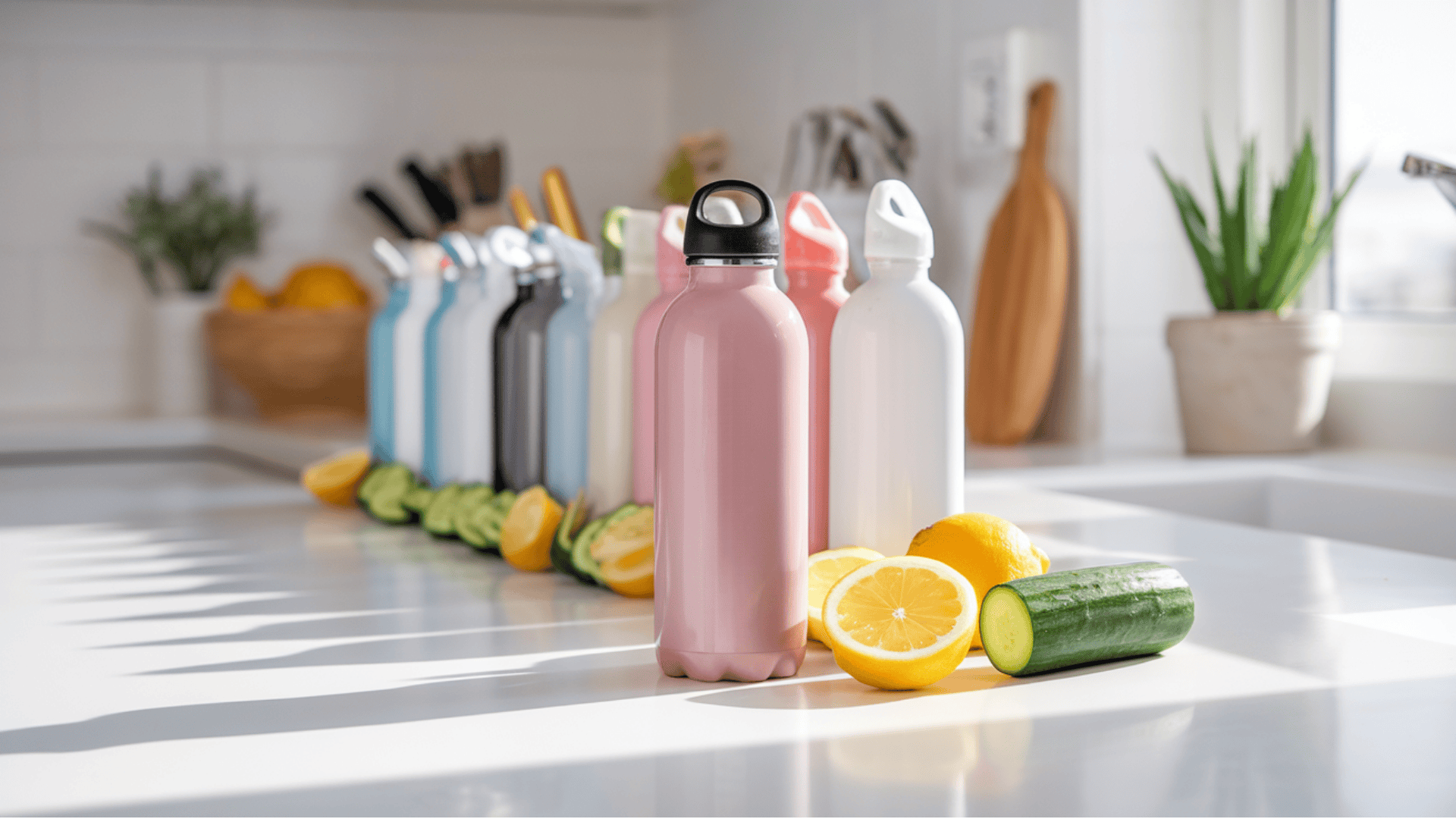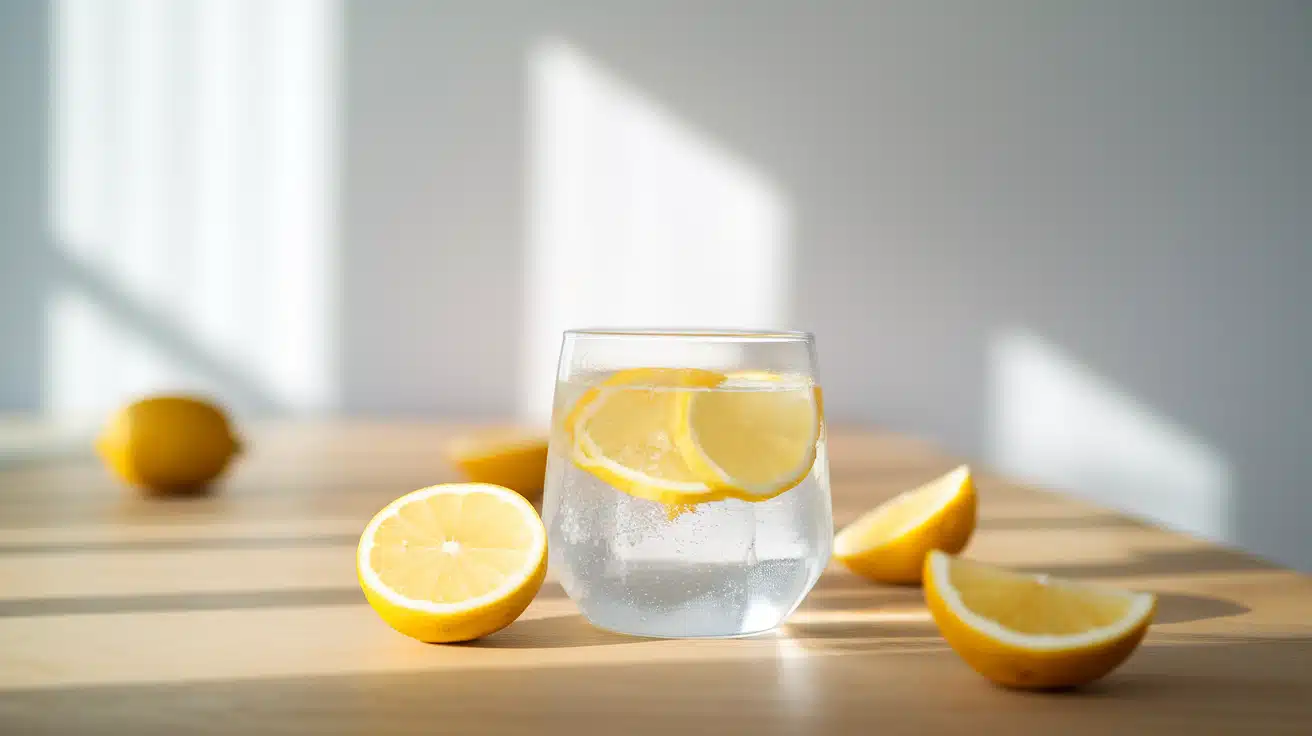Your body sends you signals every day, but one of the most important gets ignored constantly.
Do you experience dry mouth during your afternoon meeting? The headache that hits around 3 PM? The sluggish feeling that no amount of coffee seems to fix?
These aren’t random annoyances; they’re your body’s way of signaling that it needs water.
Most people know they should drink more water, but few understand how much their daily performance depends on it.
Here’s what you’ll learn: exactly how much water your body needs, which factors increase those requirements, and simple strategies to stay hydrated without forcing yourself to chug boring glasses of plain water all day.
Ready to feel more energetic, think clearly, and give your body the fuel it actually craves? Let’s start with the basics.
Why Staying Hydrated Matters?
Water forms the foundation of your health. Your body is composed of approximately 60% water, and this liquid fuel powers nearly every process that keeps you alive.
From moving blood through your veins to keeping your joints smooth, water does the heavy lifting behind the scenes.
When you don’t drink enough, your body cannot function properly. Think of it like trying to run a car with low oil; everything starts to break down.
Early warning signs your body needs more water:
- Dry mouth, lips, or eyes – Your body’s first cry for help
- Headaches or dizziness – Your brain is telling you it’s thirsty
- Fatigue or loss of focus – Energy drops when hydration drops
- Dark yellow or strong-smelling urine – A clear signal you’re running low
These symptoms might seem small, but they’re your body’s way of waving a red flag.
What Happens if You Ignore These Signs?
Long-term dehydration creates bigger problems. Your kidneys work harder, which can lead to the formation of painful kidney stones.
Urinary tract infections become more common. Your brain fog worsens, making it increasingly difficult to think clearly and recall information.
The good news? All of this is preventable. A simple glass of water can turn your day around and keep your body running like the well-oiled machine it’s meant to be.
Benefits of Drinking Water
Water truly earns its title as the “elixir of life.” Your body craves it for numerous reasons, and the benefits of staying hydrated impact every aspect of your health.
- Boosts physical energy – Just losing a little water makes you feel tired and weak.
- Supports digestion – Water breaks down your food and helps your body grab the nutrients it needs.
- Flushes toxins – Your kidneys use water like a filter to clean waste from your blood.
- Keeps skin healthy – Well-hydrated skin looks fresh and has a natural glow.
- Improves brain performance – Even small drops in water levels hurt your memory and focus.
- Regulates body temperature – Water keeps you cool when you exercise or face hot weather.
- Aids weight management – A glass before meals helps you feel full and speeds up your metabolism a bit.
Pro Tip: Start your morning with a glass of water. After hours of sleep, your body is ready for that first hydration boost to kick-start your metabolism and wake up your system.
How Much Water Do You Need Each Day?

The U.S. National Academies of Sciences has done the math for us. Here’s what they recommend:
- Women need about 2.7 liters (91 ounces) per day
- Men need about 3.7 liters (125 ounces) per day
But here’s the good news – this includes all fluids combined. Plain water, your morning tea, milk in your cereal, and even the water hiding in your food all count toward your daily goal.
Sources of Total Water Intake
Your hydration comes from two main places:
- 20–30% comes from food – Cucumbers, watermelon, oranges, and soups are water powerhouses
- 70–80% comes from fluids – Plain water, tea, coffee, and juice make up the bulk
If you love fruits and vegetables, you’re already ahead of the game. That juicy apple or crisp lettuce is working hard to keep you hydrated.
Factors That Increase Water Needs

Life isn’t always predictable, and neither are your hydration needs. Some situations push your body to work harder, which means you need to drink more than the standard 2–3 liters.
1. Exercise
Your muscles generate heat when they work, and sweating is your body’s cooling system. Aim to drink an extra 16–24 oz per hour of activity.
Don’t wait until you feel thirsty; by then, you’re already behind. Keep sipping throughout your workout to replace what you’re losing through sweat.
2. Hot Climates
High temperatures cause your body to sweat more in an effort to regulate its temperature. Increase your intake when the mercury rises or humidity climbs.
Air conditioning isn’t always available, so your internal cooling system has to work overtime. Even sitting in hot weather can deplete your water reserves more quickly than usual.
3. Illness
When you’re sick, your body fights hard to get better. Fever, vomiting, or diarrhea can quickly dehydrate your system.
A fever causes you to sweat more, while stomach problems cause fluids to be flushed out of your body. Your immune system also requires additional water to help eliminate toxins and waste.
4. Pregnancy & Breastfeeding
Growing a baby or producing milk takes serious resources from your body. Both conditions require extra hydration for healthy fetal development and milk production.
Pregnant women need approximately 300ml more daily, while breastfeeding mothers may require an additional 700ml per day.
Your body is literally sharing its water supply, so you need to refill the tank more often.
Other Sources of Hydration

Plain water doesn’t have to be your only hydration hero. Your body is smart – it can pull moisture from various sources to keep you running smoothly.
1. Water-Rich Foods
Some foods are basically water in disguise. Cucumbers pack 96% water, while watermelon delivers 92% liquid refreshment.
Lettuce, strawberries, oranges, and hearty soups all contribute to your daily fluid goals. Think of your salad as a mini water bottle that also happens to taste great and provide vitamins.
2. Healthy Drinks
Your morning routine can also serve as a time for hydration. Tea, coffee (in moderation), milk, and coconut water all count toward your daily intake.
That cup of green tea isn’t just warming you up – it’s also keeping your hydration levels steady. Even your latte contributes, thanks to the milk inside.
3. Drinks to Limit
Not all liquids help your cause. Sodas, alcohol, and energy drinks can actually work against you and increase dehydration.
These drinks often contain caffeine or alcohol, which can make your body lose more water than it gains.
They might quench your thirst temporarily, but they’re not doing your hydration levels any favors in the long term.
Pro tip: If plain water feels boring, jazz it up naturally. Add slices of lemon, cucumber, or fresh mint for flavor without the sugar crash. Your taste buds get a treat, and your body gets the hydration it craves.
Practical Tips to Drink Enough Water
Meeting your daily water goal doesn’t have to feel like a chore. Small changes in your routine can make staying hydrated feel natural and effortless.
- Carry a reusable water bottle wherever you go – When water is always within reach, you’ll sip without thinking about it.
- Set phone reminders or use hydration apps – Let technology be your hydration coach with gentle nudges throughout the day.
- Drink a glass of water before each meal – This simple rule helps you reach your target while also supporting digestion.
- Flavor your water with fruits or herbs for variety – Turn boring water into a refreshing treat that you actually want to drink.
- Track your intake with journals, apps, or smart bottles – What gets measured gets done, and seeing your progress motivates you to keep going.
- Make it visible – keep a water bottle at your desk or in your car. Out of sight, out of mind doesn’t work for hydration.
The key is picking one or two strategies that fit your lifestyle. Start small, build the habit, then add more techniques as drinking water becomes second nature. Your body will thank you for making hydration a priority.
To Sum It Up
So, how much water should you drink daily? Most women require approximately 2.7 liters, while men need around 3.7 liters; however, your body’s needs can change based on factors such as exercise, climate, and health conditions.
The key takeaway: Listen to your body’s signals. Dry mouth, fatigue, and dark urine are warning signs indicating it’s time to drink up. Don’t wait until you’re thirsty – by then, you’re already behind.
Start small. Select one strategy from this guide, such as carrying a water bottle or drinking water before meals. Build that habit, then add another.
Your energy levels, brain function, and overall health will improve when you give your body the hydration it craves.
What’s your biggest challenge with staying hydrated? Share your experience in the comments below, and let’s help each other build better hydration habits that stick.









